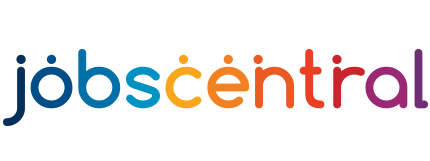 One of the things that aspiring scholars dread the most during the scholarship application process is the interview. The bad news is, there is no ten-year-series to give you the perfect answers to memorise. But the good news is, we have some tips for you on six of the most commonly asked questions during scholarship interviews.
One of the things that aspiring scholars dread the most during the scholarship application process is the interview. The bad news is, there is no ten-year-series to give you the perfect answers to memorise. But the good news is, we have some tips for you on six of the most commonly asked questions during scholarship interviews.
1. "Tell me about yourself."
Interviewers often like to start off with this question. This may sound very simple, but can be very tricky. Your answer to this question sets the tone for the rest of the interview and gives the interviewers the first peek into your personality.
Do not repeat information that is already on your application form and refrain from the obvious, like "I'm Jamie Tan and I am 18 years old". Elaborate on a few key points about yourself, highlighting what makes you stand out from all the other candidates out there. Imagine yourself on television and this is your one minute of fame. You have 60 seconds worth of "air time" to introduce yourself before the camera moves on.
2. "What is your greatest achievement/failure?"
Now is the time to sell yourself to the interviewers. Be confident and self-assured when highlighting your strengths and accomplishments, taking care to substantiate them with concrete examples.
However, don't get too carried away with self-promotion. Show that you are also aware of your shortcomings, and more importantly, emphasise on your ability and willingness to overcome them. It would be good if you can relate back to the organisation, and its role and ability in bringing out the best in you.
As you may have already realised, coming up with such replies require a considerable amount of self-awareness on your part. Thus, do some self-reflection while preparing the answers. Remember that what the interviewer ultimately wants is an honest assessment of your abilities.
3. "Can you describe some experiences of being a leader or instances where you have displayed leadership?"
Firstly, note that you don't have to hold an official title or position to display leadership capabilities. The key is to illustrate the depth of your commitment and describe the impact you have made when you took up the role.
Avoid merely listing a bunch of leadership positions or activities. Stick to one or two more remarkable examples and give details on the accomplishments you have made. Examples can include having led a committee of 20 in organising a baking workshop at an orphanage or having pioneered a hobby club that has gathered 200 members.
4. "Why did you apply for this scholarship?"
This is a question that you should already have an answer to even before you went through the tedious process of applying and preparing for the scholarship. Don't be afraid to reveal your financial difficulties if it is indeed one of the primary reasons. However, there must be other reasons why you choose this particular scholarship, among so many others. Talk about what differentiates this scholarship or organisation from the others – how you identify with the values, career prospects or reputation.
5. "Who is your role model or has influenced your life and why?"
This is a question that can reveal a lot about your character, what values you care about and what qualities you aspire to emulate. Make sure you know enough about your hero, including his shortcomings, and how he overcomes them. Explain what characteristics you admire about this person or what lessons you have learnt from him. Be careful on your choice and always elaborate.
If you only provide the name of your role model without offering any explanation, the judges will have to fill in the blanks themselves based on their own impressions of that person. Let's say you tell them your role model is Jennifer Lawrence – you may admire her for her frank nature and brutal honesty, but that will not get through if the judges only know her as a potty-mouthed actress.
6. "Do you have any questions for me?"
When most candidates hear this question, they know the interview is coming to an end and let their guard down too soon. This is probably why many tend to fail here. During your preparation, you should have generated some insightful questions on topics like career advancements and job performance evaluation. Avoid frivolous questions like lunch time, facilities, and job perks.
If you really cannot think of any question, ask for feedback on the interview. This way, you can learn something from the interview regardless of what the results are.
Do be careful not to over-prepare as you will come across as over-rehearsed during interviews. But do give some thought to these common interview questions before your interview so as to not be caught off-guarded.



